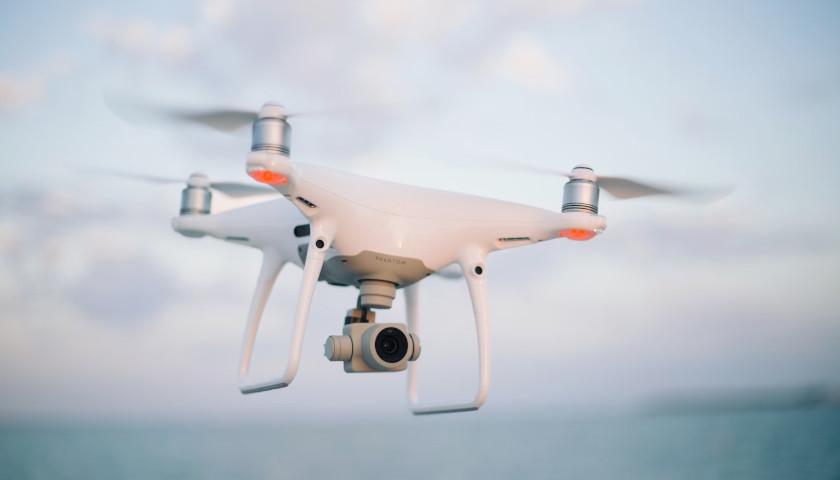by Scott McClallen
The Michigan Supreme Court heard arguments Wednesday about whether the government can use drones to surveil private property without a warrant and use that evidence in court for zoning disputes.
For two years, Long Lake Township zoning officials flew a drone over Todd and Heather Maxon’s property in northern Michigan near Traverse City, taking photographs and videos as part of a zoning dispute that he was running an illegal junkyard.
The Institute for Justice, a public interest law firm, is defending the Maxons. IJ Attorney Michael Greenberg argued drone surveillance was an illegal search and the drone photos taken should be thrown out because they were acquired by illegal means, a court-created concept called the exclusionary rule.
Bill Henn, a lawyer for Long Lake Township, said the exclusionary rule has only applied to one case, in 1958 Plymouth Sedan v. Pennsylvania, that involved police and forfeiture. This case doesn’t include the police. Moreover, Henn said the rule applies to criminal law, not civil law.
Henn said the defendants didn’t exhibit any expectation of privacy. They didn’t enact fences, roofs or awnings on their 5 acres of property. Henn said neighbors have complained since 2016.
“We have evidence that shows that all of this material that was accumulated was visible from adjacent properties,” Henn said.
The government first brought a code enforcement lawsuit against the Maxons in 2007, claiming they’d illegally stored “junk.”
The Maxons fought the case and won in 2008. The government agreed to drop the lawsuit against and reimbursed $3,000 in attorneys’ fees and a promise the government would “not … bring further zoning enforcement action against Defendant Maxon based upon the same facts and circumstances which were revealed during the course of discovery….”
Less than a decade later, Long Lake amended its zoning code and used a drone to surveil the Maxons’ home.
In September 2022, the Michigan Court of Appeals decided that even if the drone flights violated the Maxons’ Fourth Amendment rights, the government could still use the evidence obtained from the unconstitutional search in court.
The Michigan Supreme Court could enact privacy limitations for drone usage through this upcoming ruling.
The case hinges on whether the exclusionary rule apply to civil cases and whether the government using a drone to take pictures of private property constitute a warrantless search.
Greenberg said if the court sides with Long Lake, then: “It can keep the status quo and if that status quo is maintained, property owners can expect drones hovering around the low altitudes of their backyard for whatever reason any government official wants,” he said.
“If the court holds that this is a search, the government may only do so when trying to gather evidence if a neutral judicial officer agrees there’s probable cause to do so.”
However, Henn disagreed. He said that courts will have “no trouble” finding particular drone usages that raise Fourth Amendment concerns, but this isn’t one of them.
Henn said Michigan’s Legislature can enact privacy laws regarding drones.
– – –
Scott McClallen is a staff writer covering Michigan and Minnesota for The Center Square. A graduate of Hillsdale College, his work has appeared on Forbes.com and FEE.org. Previously, he worked as a financial analyst at Pepsi. In 2021, he published a book on technology and privacy. He co-hosts the weekly Michigan in Focus podcast.








